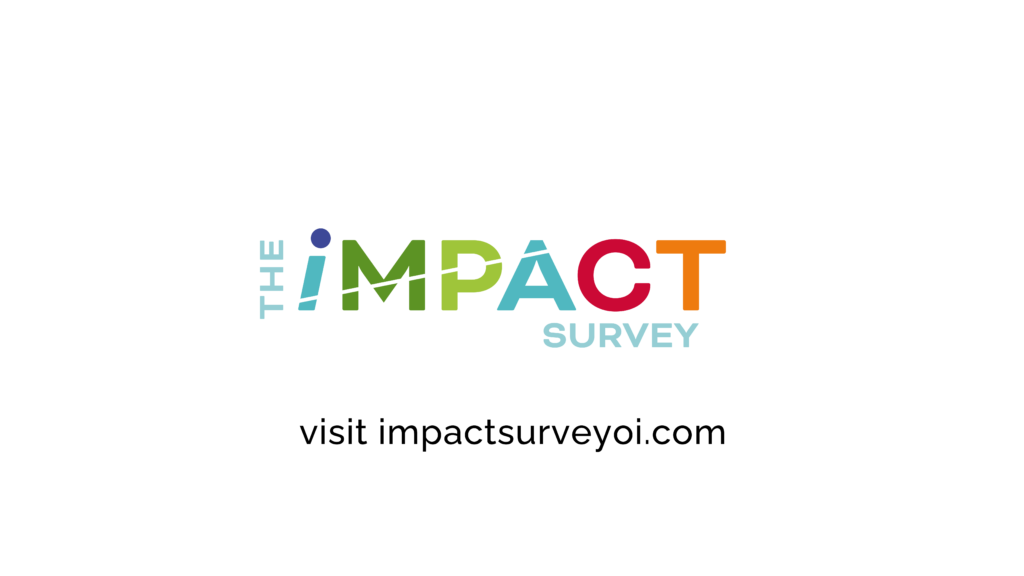Share
Make an IMPACT on the Future of OI Research! Complete the Impact Survey Today
July 1, 2021

We’re delighted to announce that The IMPACT Survey is now LIVE and will be open until September 10, 2021!
The IMPACT Survey is an international survey aimed at capturing and quantifying the real impact OI has on people’s lives to enable better diagnosis, treatment and care, and to support availability of potential future treatments for OI. The results from this survey will be used to enable better healthcare services for both children and adults and to support availability of potential future treatments for OI.
If you have OI, or are a parent/caregiver of a child with OI, we want to hear from you! Make an IMPACT on the future of OI research by completing the first-ever GLOBAL OI survey at: www.impactsurveyoi.com
The IMPACT Survey is a joint research project between the Osteogenesis Imperfecta Foundation, Osteogenesis Imperfecta Federation Europe and the pharmaceutical company Mereo BioPharma.
Was this helpful?
Thanks for your feedback!
